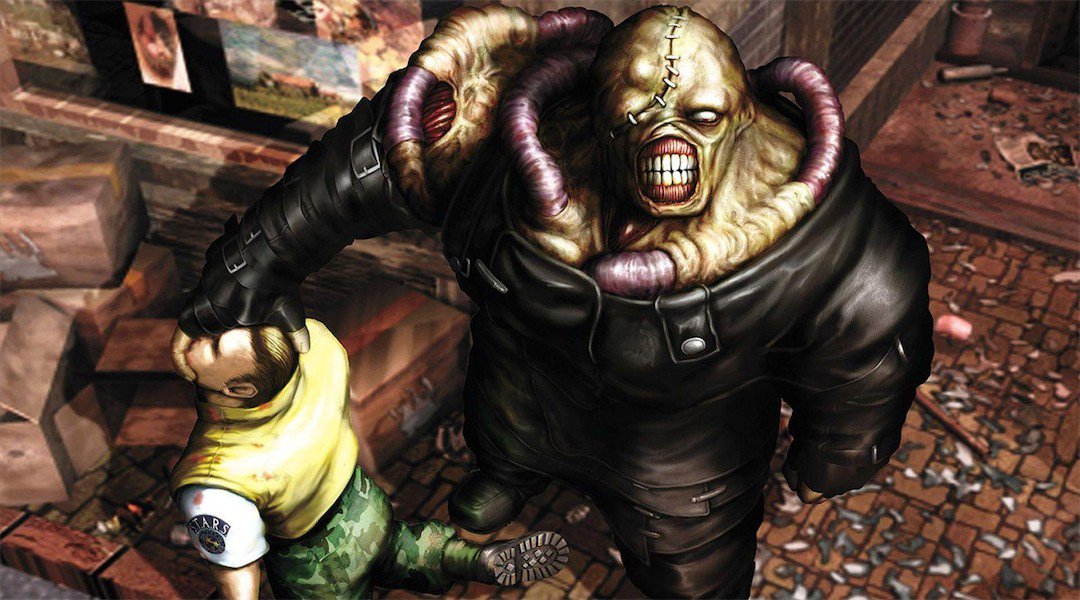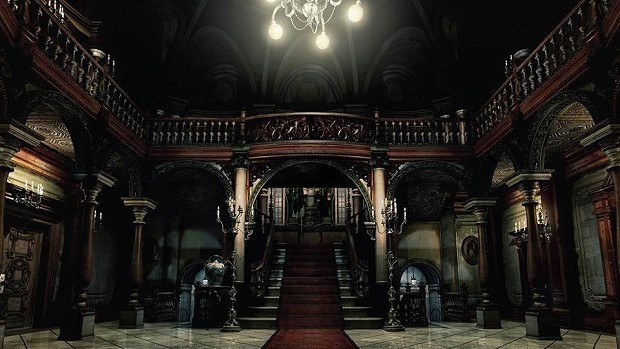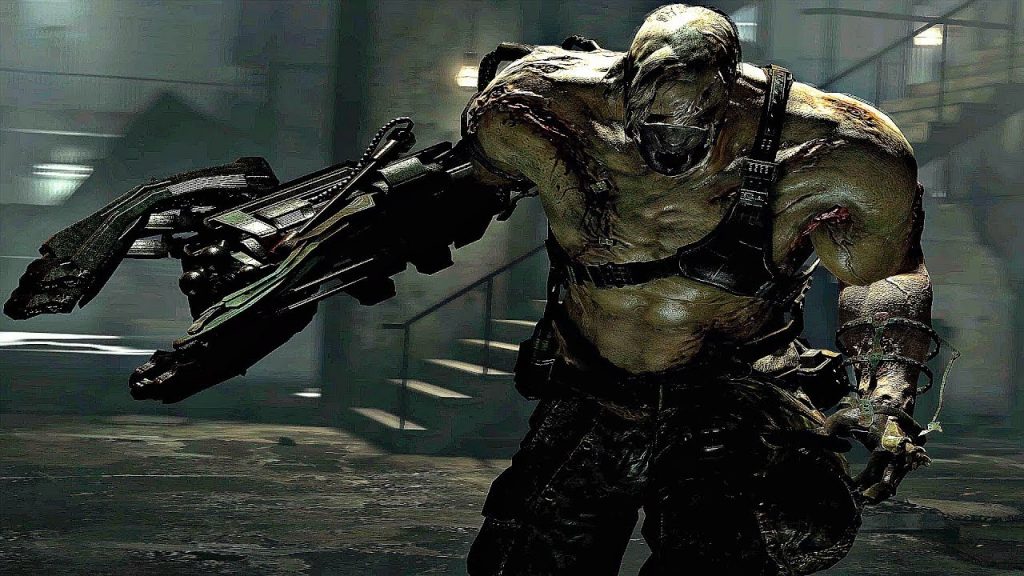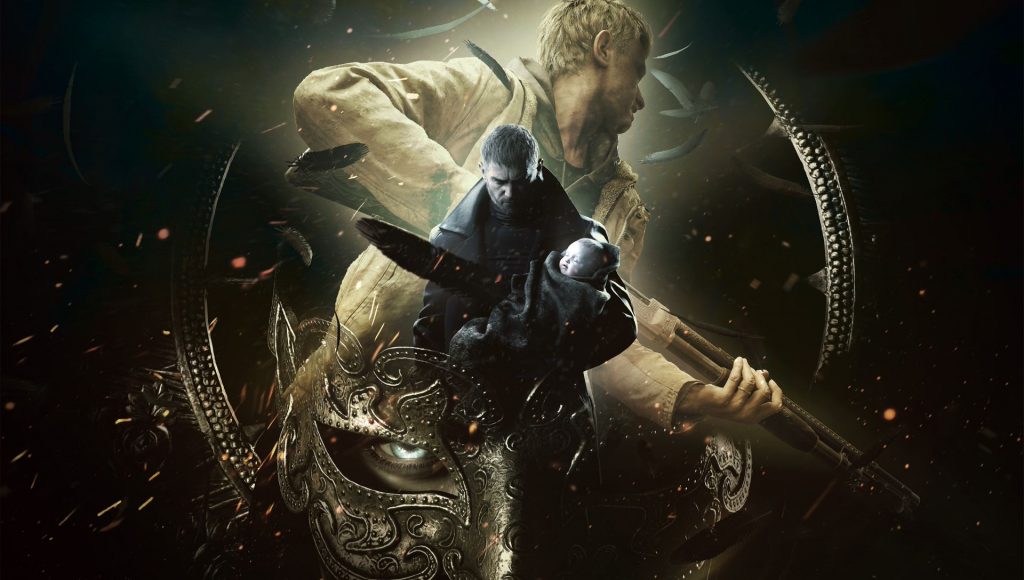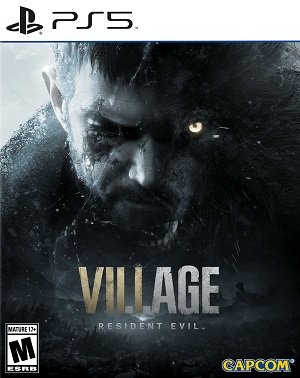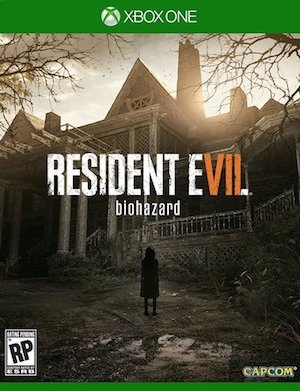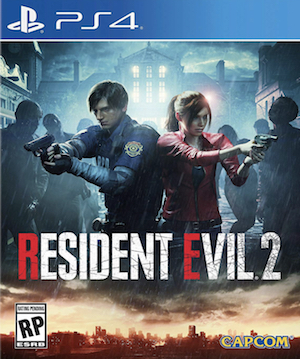
Resident Evil is 25 years old, and it’s fair to say that it’s been a very eventful 25 years. Any franchise that has been around and been successful for as long as Resident Evil has been needs to be willing to change and adapt to changing tastes, and Capcom’s horror franchise in particular has always excelled at that. No, not all experiments have been successful, and sure, the franchise has stumbled in some pretty embarrassing ways at times, but the fact that it’s still going as strong as ever and enjoying critical and commercial success with its new entries really says something about the enduring quality of Resident Evil. Which is why charting its growth and evolution through the two and a half decades that it’s been around is so fascinating.
When Capcom first released Resident Evil, the struck gold. It definitely wasn’t the first of its kind – notable releases such as Sweet Home and Alone in the Dark had already laid down the foundations for what would become the survival horror genre years later – but Resident Evil was when survival horror truly came into its own and properly became a thing. Hell, the game even coined the term “survival horror”, something that is accepted as a generic categorization these days, which should tell you something about its impact and legacy. Taking the haunted mansion setting of Sweet Home and the fixed cameras perspective of Alone in the Dark, Shinji Mikami and Capcom concocted that was entirely unique and original.
The fixed cameras were very much also a product of the limitations of technology at the time- Mikami originally conceptualized Resident Evil as a first person game, which he figured would be a much more immersive horror experience, but decided to go with a fixed cameras approach inspired by Alone in the Dark, since the pre-rendered backgrounds that would have gone along with that would have allowed for a much better looking game. And it ultimately turned out to be the right decision, because fixed cameras, alongside tank controls, would go on to define the next ten years of the franchise.
Those two defining factors, as well as a focus on lock-and-key exploration, puzzle solving, inventory management, and ammo and resource management became the core pillars of what a Resident Evil game should be. The first game in the series enjoyed incredible critical and commercial success, and greenlighting a sequel became a no-brainer for Capcom, with Hideki Kamiya taking over as director, while Shinji Mikami moved into a supervisory and production role. Capcom, of course, wanted the sequel to be bigger and better, not just in terms of quality, but also in terms of sales, and Kamiya had a battle plan locked and loaded to make that a reality. Building on the strengths of the first game, Resident Evil 2 (after a couple of iterations, one of which – now famously dubbed Resident Evil 1.5 – was famously scrapped during development) expanded the scope of the series by taking players to Raccoon City, telling a story much larger in scale, and upping the production values in terms of cutscenes, visuals, storytelling, and more.
RE2 was the perfect sequel, just as good as its legendary predecessor, if not better, and with it, Resident Evil firmly established itself as one of Capcom’s most valuable and important intellectual properties. Immediately following the instant success of RE2, Capcom greenlighted two new projects in the series. One of these initially started out as an attempt to port RE2 to the Sega Saturn, but when the development team realized that that would be impossible to pull off without making significant sacrifices to the game’s quality, they ended up beginning work on an entirely new project for Sega fans, eventually settling on the Dreamcast as their platform of choice. This game was viewed internally by the development team and producer Shinji Mikami as Resident Evil 3, but with Capcom wanting to keep the numbered series exclusive to PlayStation, they ended up calling it Resident Evil – Code: Veronica instead. Meanwhile, a spinoff side project that would star Jill Valentine and run parallel with Resident Evil 2’s events was being developed exclusively for the PlayStation- and that game was turned into Resident Evil 3: Nemesis.
As Resident Evil grew and became more successful, it also started becoming much more action-oriented. RE2 had already been a more action-focused game than its predecessor, while Resident Evil 3: Nemesis, with the introduction of things like the quick turn and a dodge mechanic, leaned in on the action aspects even more heavily. Then there was Code: Veronica, which, with its high concept sci-fi infused story, gothic setting, a much more high-stakes narrative, and the fact that it ditched pre-rendered backgrounds, was quite a deviation for the series.
By the early 2000s though, it had become clear that Resident Evil was beginning to run out of steam. From a quality perspective, the franchise was going as strong as ever, but where sales were concerned, it was losing momentum. Code: Veronica sold well enough (and would sell even more upon being ported to the PS2 a year after its launch), but by the early 2000s, Capcom had entered into an exclusivity deal with Nintendo. Within eight months, they launched two major new entries in the franchise for the GameCube. First came a ground-up remake of the Resident Evil, which is, to this day, probably one of the best games in the series, and a shining example of how to remake a game. Then came Resident Evil Zero, a much more experimental prequel set before the events of the first game, which was much less well received than any other mainline game in the series had been up until that point.
Both games sold worse than Capcom had expected. The fixed cameras formula the series had stuck to for over half a decade was beginning to wear people out, and the fact that the last two major entries in the series had launched as GameCube exclusives – a console that itself wasn’t selling nearly as well as Nintendo had hoped – meant that sales suffered even more. It became clear to Capcom that if they wanted Resident Evil to grow the way they wanted to, they needed to shake things up.
Enter: Resident Evil 4. When development on the game began in 1999, it wasn’t actually intended to be a reinvention of the series. RE4 was originally being developed as another entry that would use fixed cameras and tank controls, with RE2 director Hideki Kamiya once again in charge of the project. The game went through an unusually long development cycle though, with multiple versions of the project being developed and then eventually scrapped. One particular version progressed quite far, adopting an action heavy approach with dynamic cameras, but when that project was deemed to be deviating too much from the survival horror roots of the series, Shinji Mikami convinced the development team to develop it as a separate, independent game. That game is now known as Devil May Cry.
And with Hideki Kamiya being busy with directing Devil May Cry, Shinji Mikami returned to the hotsteat as director of RE4, and started from scratch. Deciding to reinvent the series, not only because he wanted to inject new life into it, but also became the developers themselves had grown tired of sticking to a single formula, Mikami decided to completely reinvent the Resident Evil 4. And you don’t need us to tell you how that went. Just as the original Resident Evil pioneered the survival horror genre, so, too, did Resident Evil 4 pioneer the over-the-shoulder perspective that’s become so ubiquitous since then. While elements such as inventory management and a general horror aesthetic were remained, RE4 was meant as a much more action-heavy game, thanks to its over-the-shoulder third person perspective, its Summer Hollywood popcorn flick style narrative and storytelling, a Leon S. Kennedy who always had a cheesy quip at the tip of his tongue, and and action-oriented mechanics such as melee attacks that included roundhouse kicks and suplexes.
As radically different as RE4 was from its predecessor, the response the game received was rapturous. It’s still regarded as one of the best games ever made, period, while the game has also been one of Capcom’s best sellers (thanks in large part, of course, to the countless ports and re-releases it has seen over the years). And the massive success that Resident Evil 4 enjoyed could only mean one thing- Capcom wanted more. They wanted the series to double down on what made RE4 tick, they wanted it to become more action-oriented and for it to lean harder into its Hollywood-style Blockbuster stories, they wanted it to appeal to the masses so they could sell millions upon millions of copies of each new game.
Thus, Resident Evil 5 was born. By this point, the franchise had almost completely dropped all pretenses of being a horror series. RE5 was all about the action, about high-octane and tense shootouts, about a globe-trotting story with massive stakes, about set-piece encounters to make your adrenaline pump. It retained the slow movement and deliberate controls of RE4, which meant there was still a little bit of Resident Evil in there, but it was very much an action game. There was, to little surprise, plenty of backlash against the game thanks to that, but it was largely well received by critics- and there’s no doubting that, viewed on its own merits, RE5 is an excellent game. It’s a great action horror shooter, it’s an incredibly enjoyable co-op experience, it’s story is full of payoffs and culminations and fan-service. For Resident Evil fans, it’s definitely unmissable. It has also sold well over a dozen million copies, which means it is, to this day, one of Capcom’s highest selling games of all time.
That enduring critical and commercial success, however, proved to be quite detrimental to Resident Evil in the long run. Because wanting to double down on all the worst tendencies of Resident Evil 4 and 5, Capcom decided to go ahead and make Resident Evil 6. And once again, we all know how that turned out. RE4 and 5 were incredibly successful, but to Capcom, that meant they were also perfect. The series had been becoming progressively more action-oriented? Resident Evil 6 was turned into a straight up third person shooter with nary any horror elements and next to no inventory and resource management to speak of. The series’ stories had dropped their relatively grounded roots and turned into high-stakes, large-scale global stories? Resident Evil 6 decided to escalate things even further, taking things to completely ridiculous heights, and not in a good way. Meanwhile, games like Uncharted and Call of Duty were blowing people away with their explosive set-pieces? Resident Evil 6 was full of explosions, to the point where it felt like Capcom had crammed six storyboards of Michael Bay movies into a single game.
There was no restraint, no thought behind any of it. RE6 was a decent action game, but it was a terrible Resident Evil game, defined by a nonsensical story and a complete betrayal of everything that the series had once been about. With little to no redeeming qualities, Resident Evil 6 was lambasted by one and all upon launch, and remains the lowest rated mainline game in the series even now. And though it sold extremely well, even almost matching RE5’s sales, Capcom realized that they had lost its way with Resident Evil. The fact that they had released the terrible Operation Raccoon City barely months before RE6 came out was also doing the series no favours. Capcom knew they needed to put their heads down and go back to the drawing board, or else they would risk losing the series’ fanbase, and destroying the reputation and legacy of their iconic franchise. More horror-focused games such as Revelations (and later Revelations 2) had been much better received by core series fans, and Capcom knew that there was only one logical way to proceed- Resident Evil needed to go back to its roots.
And then came the series’ next major reinvention, taking the form of Resident Evil 7: Biohazard, which was well and truly a back-to-the-basics deal for RE. With the return of inventory management, limited ammo and resources, a focus on exploration and puzzle solving, a much more restrained and grounded story, and an intimate haunted house setting, it was a proper Resident Evil game in every sense of the word. In fact, it wouldn’t be an exaggeration to call it the truest Resident Evil game since RE1’s remake launched for the GameCube all the way back in 2002. Sure, it once again decided to change things radically by adopting a first person perspective, but when it came to the actual game design and the core philosophies that the game was built on, Resident Evil 7 was a proper hard-boiled RE game- exactly what fans had been craving for for decades. And given the fact that Shinji Mikami had originally envisioned RE1 as a first person game, it was oddly fitting that the game that would see the series returning to its roots and taking so many cues from the first instalment would adopt a first person perspective.
Resident Evil 7 was as well-received as you’d expect, and though it did not enjoy the immediate burst of sales that the more action-heavy RE5 and RE6 did, the game has exhibited incredibly long legs. It’s still selling well more than four years on from its launch, and at over 8.5 million units sold to date, it’s also one of Capcom’s best-selling games of all time.
It’s frankly surprising how much Resident Evil has been willing to experiment and step out of its comfort zone over the years. All too often, franchises fail to adapt to changing tastes, instead rigidly choosing to stick to established formulas and gradually losing relevance as a result. Resident Evil has definitely not been one of those franchises, and has all too often been more than happy to tear up the rulebook in an effort to re-examine what it needs to become as it moves forward.
And we haven’t even spoken about the spinoff entries, and all the things that they have experimented with. With Resident Evil Gaiden, the series gave us a weird top down-slash-first person action-adventure title. With Survivor, Survivor 2, and Dead Aim, it gave us light gun shooters. With Outbreak and Outbreak: File #2, it gave us solid co-op games with the fixed cameras and tank controls of classic RE games. With The Umbrella Chronicles and The Darkside Chronicles, it gave us legitimately enjoyable on-rails first person shooters. With The Mercenaries 3D, it has given us a great arcade-style third person shooter. There’s also Umbrella Corps… but we don’t talk about Umbrella Corps.
Predictably, RE7 has also sparked a second golden age for the series, and Capcom have followed up on it with the incredible Resident Evil 2 remake (which is easily one of the best survival horror games of all time), and the not-quite-stellar-but-still-ultimately-enjoyable Resident Evil 3 remake. Resident Evil Village is up next, and from the looks of it, it seems to have all the elements in place to be yet another stellar step forward for the franchise. Here’s hoping the series remains as nimble and flexible as it always has, and keeps finding new ways to take the industry by storm. If the last 25 years are anything to go by, we probably don’t have anything to worry about on that front.








